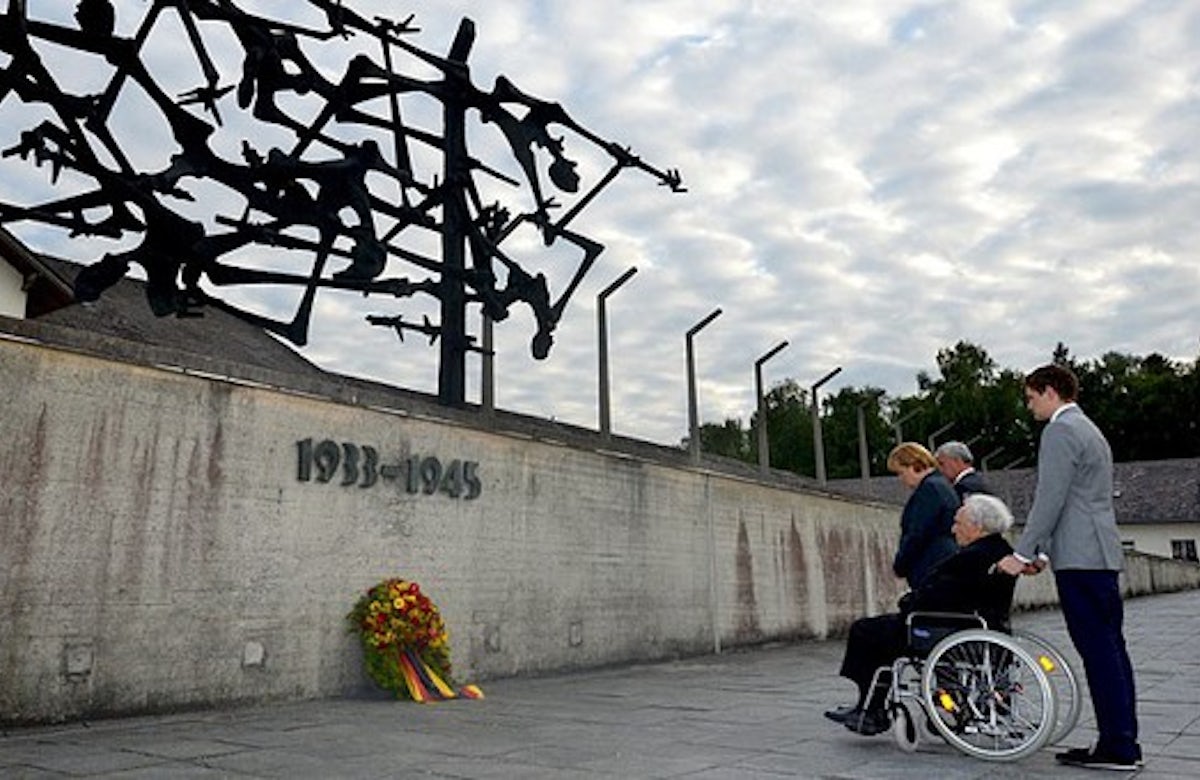 German Chancellor Angela Merkel on Tuesday become the first German head of government to pay an official visit to the former Nazi concentration camp Dachau, near Munich, where Nazis killed more than 41,000 people during the 12 years of their rule from 1933 to 1945. Merkel had been invited by Shoah survivor Max Mannheimer, 93, who lost many members of his family in the Shoah.
German Chancellor Angela Merkel on Tuesday become the first German head of government to pay an official visit to the former Nazi concentration camp Dachau, near Munich, where Nazis killed more than 41,000 people during the 12 years of their rule from 1933 to 1945. Merkel had been invited by Shoah survivor Max Mannheimer, 93, who lost many members of his family in the Shoah.
Dachau was the first concentration camp set up by the Nazis set up Dachau, first to detain political opponents and later also Jews, Roma, Russians, Poles and homosexuals.
More than 200,000 people had been detained in the camp when US troops liberated it on 29 April 1945. Television footage showing piles of bodies and starved inmates in the camp was among the first images the world saw of the Holocaust crimes.
The chilling motto 'Arbeit macht frei' (Work makes you free) on the main gate to Dachau still greets the 800,000 annual visitors to the camp, where Merkel spoke to a small group survivors in the camp's parade ground, surrounded by drab grey barracks and watchtowers. "The name Dachau is tragically famous as it serves as a model for the concentration camps," she said, adding: "The memory of that fate fills me with deep sadness and shame."
She said she was concerned about ongoing right-wing extremism in Germany, where a small neo-Nazi cell, the National Socialist Underground, is on trial for murdering nine immigrants and a policewoman between 2000 and 2007.
About 15 minutes after the visit to the site of the former camp, Merkel gave a speech at an election campaign event in a beer tent in the nearby town of Dachau. Green Party parliamentary leader Renate Künast and others criticized the chancellor, saying it was in "bad taste" for her to squeeze in a visit to Dachau between her campaign stops in Bavaria. "Anyone who was serious about commemorating such a place of horror wouldn't pay such a visit during the election campaign," Künast told the 'Leipziger Volkszeitung' ahead of Merkel's visit to Dachau.
However, the leaders of the German Jewish community defended Merkel. Charlotte Knobloch, the head of Munich's Jewish community and herself a survivor, said Merkel's visit to Dachau proved her historical awareness and sense of responsibility for Germany's past. "It is remarkable that the chancellor changed her plans at the last minute during the hot phase of the election campaign," said Knobloch, who accompanied Merkel in Dachau together with Mannheimer and other survivors.
Survivor Naor said the German population would decide whether Merkel was right to make the visit during the campaign.






